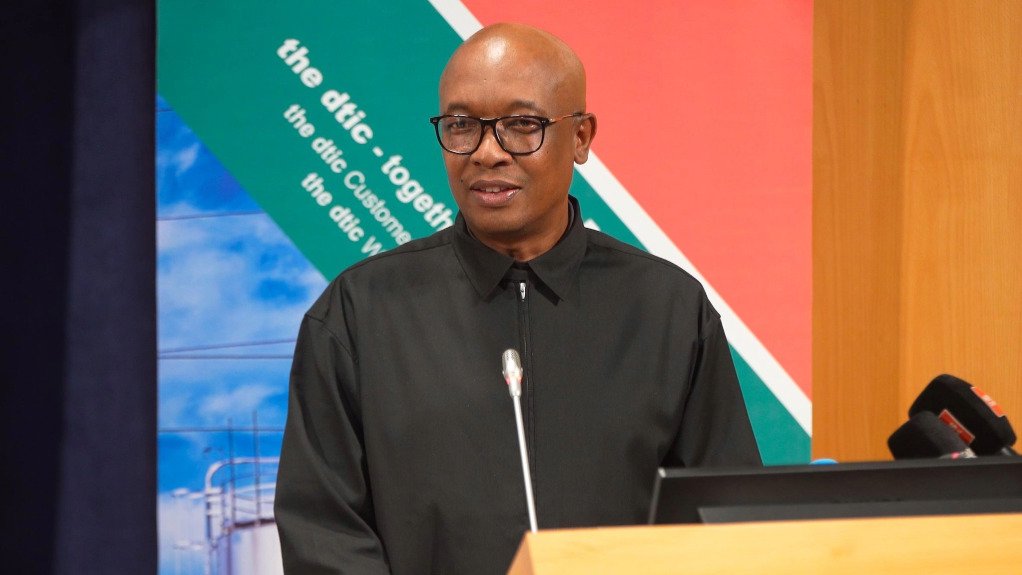South Africa has confirmed that it has no intention of imposing retaliatory tariffs on the US after President Donald Trump announced that South African imports faced so-called “reciprocal tariffs” of 31% from April 9, while automotive imports faced 25% tariffs.
Trade, Industry and Competition Minister Parks Tau argued that it would be “counterproductive” for South Africa to retaliate before engaging with the US, particularly given that it was yet to understand the basis on which the 31% reciprocal tariffs had been calculated. South Africa’s own calculation is that US imports face tariffs of only 7.6%.
The actual formula used has little to do with the tariff rate that foreign countries impose on the US, however. Instead, the calculation is based on America's trade deficit with individual countries, and the tariff announced appears designed to cancel out that deficit.
“I think it's a risky thing to do to simply decide that we are going to impose reciprocal tariffs. I think it is a race to the bottom,” Tau said at an April 4 briefing hosted jointly with International Relations Minister Ronald Lamola.
Instead, South Africa would continue to pursue a bilateral trade agreement with the US, given that Trump’s tariff announcement had effectively “nullified” the tariff- and quota-free market access that the country had hitherto enjoyed under the African Growth and Opportunity Act (Agoa).
South Africa’s Agoa eligibility would officially be reviewed by the US Congress in September, but the reciprocal tariffs had been implemented by means of a Presidential executive order, while the automotive tariffs were imposed under Section 232 of the US Trade Expansion Act.
While various South African minerals, chemicals and pharmaceutical exports to the US have been exempted from the tariffs, Tau said that the country’s agricultural, food, beverage, boatbuilding, equipment and machinery and chemicals exports have been included in the reciprocal-tariff basket, while its automotives and automotive components are captured under the Section 232 tariffs.
In 2024, South Africa exported about R153-billion-worth of products to the US, including vehicles, which made up about R35-billion of South Africa’s exports to America last year, including luxury cars produced locally by BMW and Mercedes-Benz South Africa.
Lamola said South Africa remained committed to a mutually beneficial trade relationship with the US, while bemoaning the “punitive” tariffs that had been imposed unilaterally.
“The tariffs affirmed the urgency to negotiate a new bilateral and mutually beneficial agreement with the US that will establish a more fair trade relationship with the US as an essential step to securing long-term trade certainty,” he said.
He also stressed that South African exports posed no threat to the US, with South Africa accounting for only 0.4% of US total imports, while 7.45% of South Africa’s total exports in 2024 went to America.
“[W]here there is a trade imbalance in favour of South Africa, it is mainly on agriculture products which are counter-cyclical and on minerals which are inputs in US industries.”
Neither Tau nor Lamola provided a timeframe for future bilateral talks with the US, indicating only that a trade offer was being developed and would be discussed by Cabinet before a delegation was sent to the US.
Tau said the timing of such an engagement would be determined by President Cyril Ramaphosa, while Lamola indicated that the groundwork would be laid by the special envoy or envoys that Ramaphosa planned to appoint.
The envoy or envoys would also bridge the diplomatic gap left after the recent expulsion of former US ambassador to the US Ebrahim Rasool.
These engagements would be elevated to the political level “at the right time”, Lamola added, hinting that Ramaphosa himself would play a direct role.
Meanwhile, the Department of Trade, Industry and Competition stressed that it was also alive to the indirect effects of the broad-based tariffs imposed internationally by the US, including on domestic firms and industries that could face unfair competition as goods previously destined for the US sought new markets.
Trade-defence instruments, such as safeguard and antidumping tariffs, could be used to provide protection.
EMAIL THIS ARTICLE SAVE THIS ARTICLE ARTICLE ENQUIRY FEEDBACK
To subscribe email subscriptions@creamermedia.co.za or click here
To advertise email advertising@creamermedia.co.za or click here











